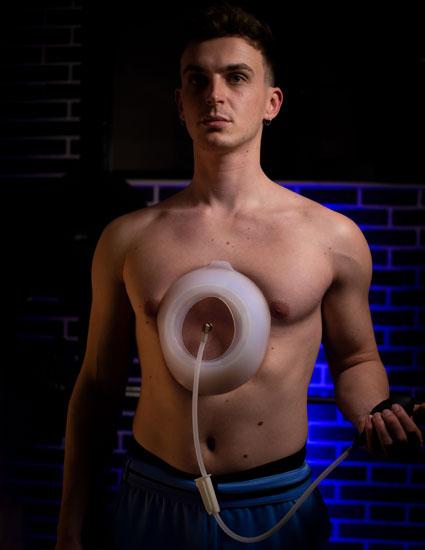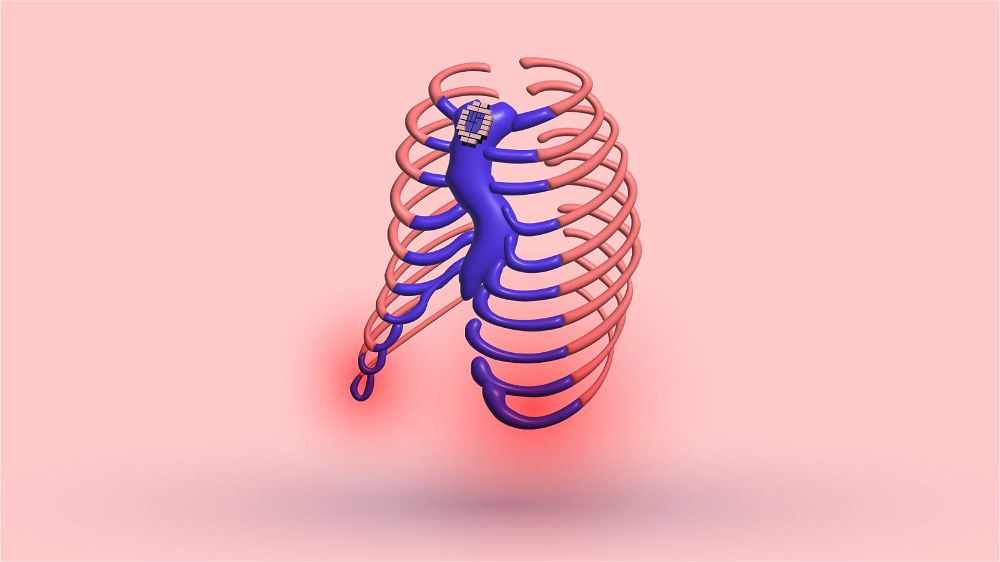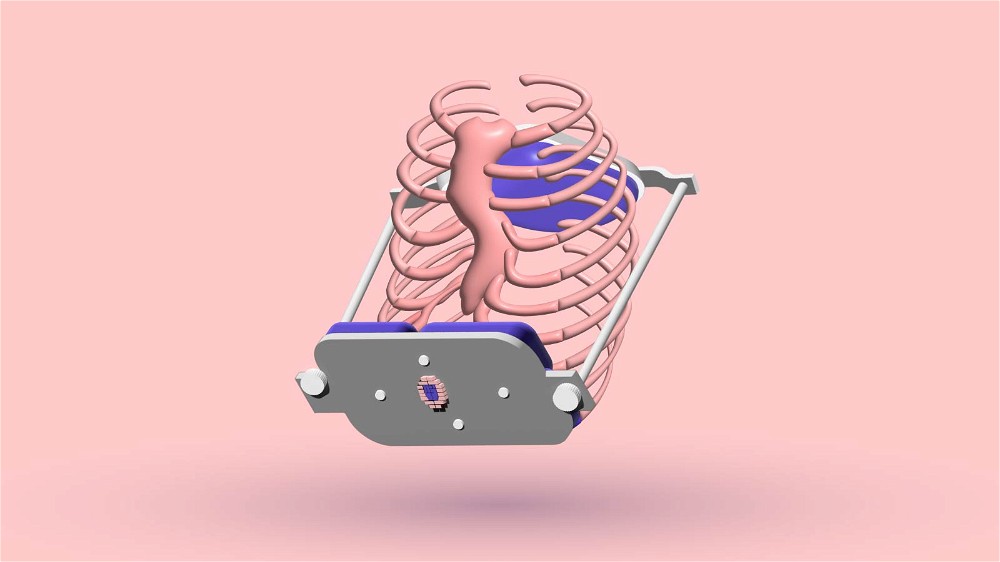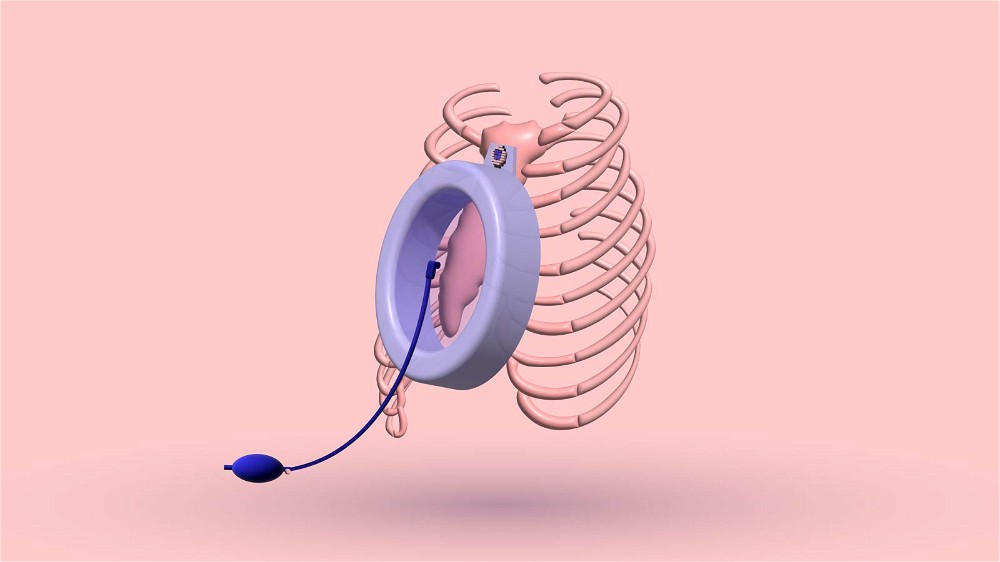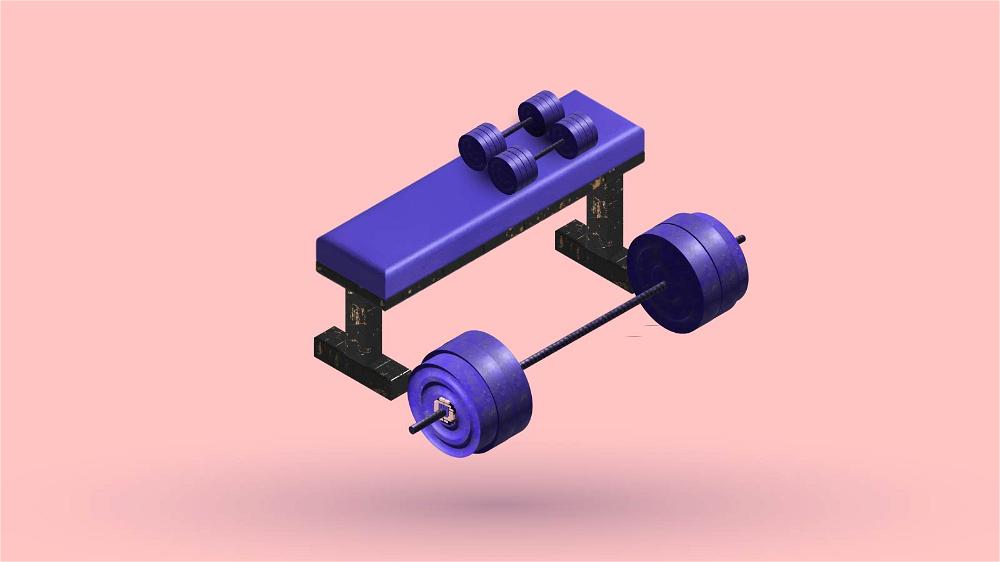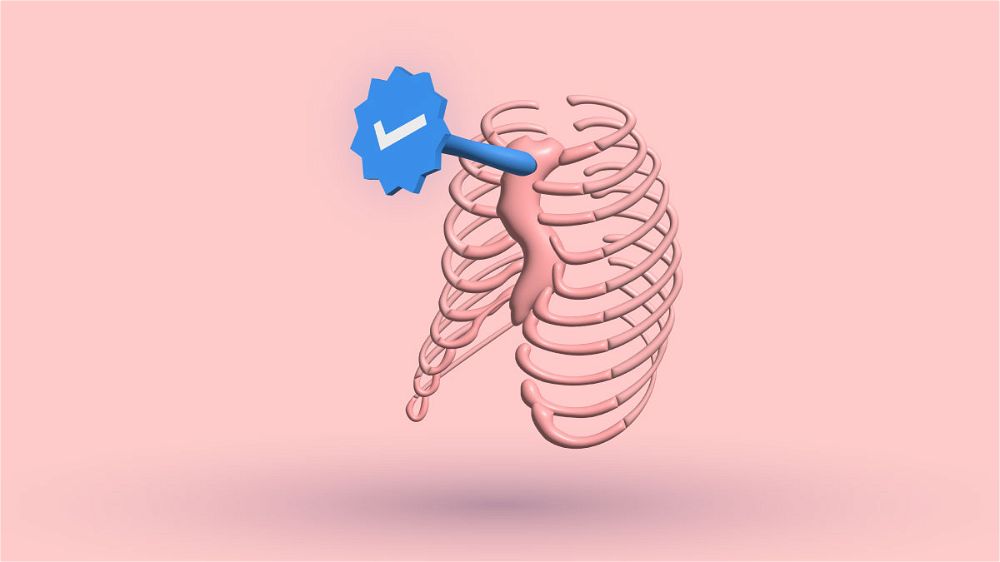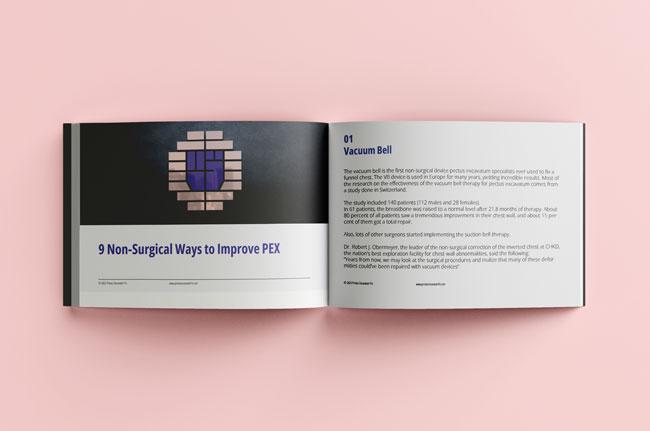Pectus excavatum is not ratable for military disability. The deformity is primarily genetic and considered Existed Prior to Service (EPTS).
That refers to medical situations diagnosed or sustained before the person entered the army. In sporadic cases, the deformity can be caused by an injury to the anterior chest wall.
Even the worst cases of sunken chest deformity can be corrected with surgery.
JOINING ARMY WITH PECTUS EXCAVATUM
Suppose you decided to join the army and are curious whether your pectus excavatum deformity will stop you from doing that.
If you have a current physical medical condition that hinders you from doing any physical activity, in that case, you're not probably going to get into the army. When working for the military, you're dealing with people's lives.
As harsh as it may sound, the army's last need is a physically impaired individual whose other people's lives depend on his ability.
Suppose your pectus excavatum deformity causes apparent shortness of breath while exercising or chest pains daily. In that case, you're probably not going to be able to join the army right away.
PHYSICAL AND MENTAL WELL-BEING PAPERWORK
When you're going through the process of joining the military, you're about to do a lot of paperwork; you'll be asked many questions about your physical and mental well-being.
EXAMPLE QUESTIONS
- Whether you've been to the emergency room before?
- Have you ever broken anything before?
- If you've been in the hospital for more than a day, why did you go to the hospital?
- Do you usually pass out randomly?
WHAT YOU SHOULD & Should NOT TELL THE RECRUITERS
Most army requiters tell applicants not to make a big deal of something that is not an issue.
For example, you don't have to tell the requiter that you sprained your ankle when you played basketball with your friends when you were ten.
The doctors told you that it is only a minor sprain, and they only recommended you follow the RICE method.
For example, if you broke a bone when you were a kid, that would've been an issue back then.
However, if the doctor said that you're perfectly healed and feel no problems because of it, you shouldn't tell the requiters about this.
Don't tell them information like this, especially when you've entered MEPS, because stuff like that isn't a problem right now.
There is no reason for you to bring up that you broke your little finger when you were a kid.
That will make the joining process a lot longer, there will be a lot more paperwork, and they will have to look through your medical history. It is not worth the hassle of mentioning some things.
WHAT YOU SHOULD TELL THE RECRUITERS
Suppose you have a scar from any injury or a result of a pectus excavatum surgery like the Nuss or Ravitch procedure. In that case, you must tell the requiters and provide the medical records about that.
The requiters also tell people that if you broke something a lime ago and the injury was minor without any consequences, you shouldn't worry about the paperwork process.
TELL THE RECRUITER ABOUT YOUR PECTUS EXCAVATUM
However, it is essential to tell the requiter about your pectus excavatum deformity, regardless of its severity.
If you are trying to join the military with a plan to leave quickly, you shouldn't mention things that aren't a problem.
TELL THEM ABOUT IMPORTANT HEALTH ISSUES
It would help if you said something that bothered you physically and mentally. For example, suppose you have seizures and epilepsy, and you have a seizure.
In that case, they will look up the medical records, and if they see that you have a history and didn't tell the requiters about it, you can get kicked out of the army.
Luckily for you, the pectus excavatum deformity can be obvious, depending on the severity. You don't have to tell the requiters about that; they will ask you.
Suppose you have a problem like pectus excavatum that can hinder you from performing certain physical activities. In that case, that needs to be brought up to the recruiter if they don't ask you about it.
DOES THE MILITARY PAY FOR SUNKEN CHEST SURGERY?
The military can cover some of the surgery if you have Tricare. You should contact them personally to figure out what the insurance can cover.
However, the Veterans Affairs (VA) will cover any service-related or service-worsened situation once you're a veteran.
Suppose the deformity was directly caused by physical injury during the military. In that case, the VA stipends service association and covers the entire surgery and medical care costs.
CONSULT WITH A MILITARY PHYSICIAN
It is essential to consult with the military physician about everything that concerns you about the inverted chest deformity.
The deformity conditions and symptoms need to be well documented throughout service because you can end up without the required proof to get the disability privileges you deserve in the future.
Specifying a Military Disability Rating for a severe pectus excavatum deformity can be very complicated.
Eventually, it is not the deformity being evaluated but the side effects of the deformation.
PHYSICAL TRAINING IN THE MILITARY CAN IMPROVE CHEST APPEARANCE
Spending time in the army will benefit your anterior chest wall appearance. You will build more muscles around that area. Some people overthink their pectus excavatum deformity.
People with almost regular-looking chests can be more concerned than those with severe cases of deformity.
Unless the indentation is deep, there should be no hindrance to the heart and lungs.
PAKISTAN ARMED FORCES CHEST DEFORMITY STUDY
The Pakistan Armed Forces Medical Journal published a 2015 study to identify the number of irregularities connected with chest wall deformities in physically ready army applicants. The study duration was from 1 January 2008 to 31 December 2011.
The method selected those with visible chest wall deformities among the physically fit applicants and transferred them for further tests.
All candidates with chest wall deformity underwent bodily examination, lung functioning analyses, and echocardiography to check heart beating and blood pumping.
During the study, chest deformation was reported in 3735 applicants. Despite their deformity, none of the candidates had any problems with the pulmonary function tests or heart functioning irregularity.
However, echocardiography discovered an anomaly in 161 of the previously asymptomatic applicants.
The study concluded that doctors should eliminate chest deformities in male applicants for the army before physical examinations. Suppose a candidate has a chest wall deformity of any kind.
In that case, he should be analyzed with echocardiography to ensure nothing is wrong with his heart.
DON'T HESITATE AND ASK DIRECTLY
The easiest thing to do is call the recruiter, schedule a meeting, and talk to him. Explain your sunken chest problem openly, and waste no time asking him whether the deformity will keep you from joining the army.
If the deformity is mild, it won't hinder your physical capabilities. Because of that, it is essential to ask somebody who knows the army's regulations and whether or not the severity of the deformity is problematic.
MEPS PROCESS
You must go through the MEPS process to check your chest deformity. They won't look through your personal medical history when you apply for the army unless you permit them to.
If you have some condition that requires them to look at your medical history, they will ask you.
The HIPAA allows the protected health information (PHI) of Armed Forces groups to be published under particular conditions.
THE ARMY CAN DIAGNOSE YOUR DEFORMITY
Some people weren't aware that they suffered from pectus excavatum until they decided to join the army.
They thought their chest wall indentation was only cosmetic. However, after they went to MEPS, the doctor discovered a heart murmur. He sends the applicant to a military hospital to do an echocardiogram.
He was disqualified because the sunken breastbone deformity compromised heart capacity and limited lung function.
Luckily, they informed them that surgeons could fix the deformation with surgery. They had to wait about six months and apply for a medical waiver.
After correcting their deformity and removing the Nuss bars from their chests, they fixed their heart and lung issues and were able to join the army.
DEFORMITY SEVERITY IS IMPORTANT IN THE RECRUITMENT PROCESS
Joining the army with a mild or severe case of pectus excavatum is a determination the doctors at MEPS will have to make.
Usually, most people applying with pectus excavatum have a slight problem with their deformity, so there aren't any issues with it. It all depends on the deformity severity and how it affects your physical capabilities.
TWO OPTIONS
There are two options.
- You'll either be qualified.
- MEPS will require you to go to a radiologist.
Then, the doctor will tell you whether you're qualified to join the army or whether you will need a medical waiver for your case.
Suppose you have no physical problems other than your pectus excavatum deformity.
In that case, the waiver is usually helpful and gets accepted.
According to the United States Department of Defense Instructions (DoDI), Medical Standards for Military Service:
"Current chest wall malformation, including but not limited to pectus excavatum or pectus carinatum which has been symptomatic, interfered with vigorous physical exertion, has been recommended for surgery, or may interfere with wearing military equipment."
THE BOTTOM LINE
Joining the army with pectus excavatum will help you learn more about deformity. Doctors can run a few tests to see whether the deformation is structural or cosmetic.
If you’re allowed to join the military, extreme physical training will help your physical appearance and lung capacity.
Don’t let the deformity stop you pursue your dreams. You won’t lose anything if you apply. Some people overcomplicate their deformity, thinking it is much worse.
The army can help you understand the severity of your deformity. Thank you for reading; please contact me or write in the comments below if you have any concerns. Thank you for reading!
6 Sources
- EPTS • Military Disability Made Easy • #1 in Veterans Disability [Internet]. 2019
[cited 2022 Dec 2]. Available from: https://militarydisabilitymadeeasy.com/epts.html - RICE Method for Injuries (Rest, Ice, Compression, Elevation) [Internet]. [cited
2022 Dec 2]. Available from: https://www.webmd.com/first-aid/rice-method-injuries - VA.gov Home | Veterans Affairs [Internet]. [cited 2022 Dec 2]. Available from:
https://www.va.gov/ - Military Disability Rating • Military Disability Made Easy • #1 in Veterans Disability [Internet]. [cited 2022 Dec 2]. Available from: https://militarydisabilitymadeeasy.com/military-disability-rating.html
- Haleem A, Hanif MS, Majeed FA, Din N ud, Wyne A, Rahim K. FREQUENCY OF
ANOMALIES ASSOCIATED WITH CHEST DEFORMITY IN PHYSICALLY FIT MALE
CANDIDATES REPORTING FOR MILITARY RECRUITMENT. Pakistan Armed Forces
Medical Journal. 2015 Apr 30;65(2):170–4. - An Overview of the Military Entrance Processing Station [Internet]. [cited 2022
Dec 2]. Available from: https://www.liveabout.com/meps-at-a-glance-3354039





